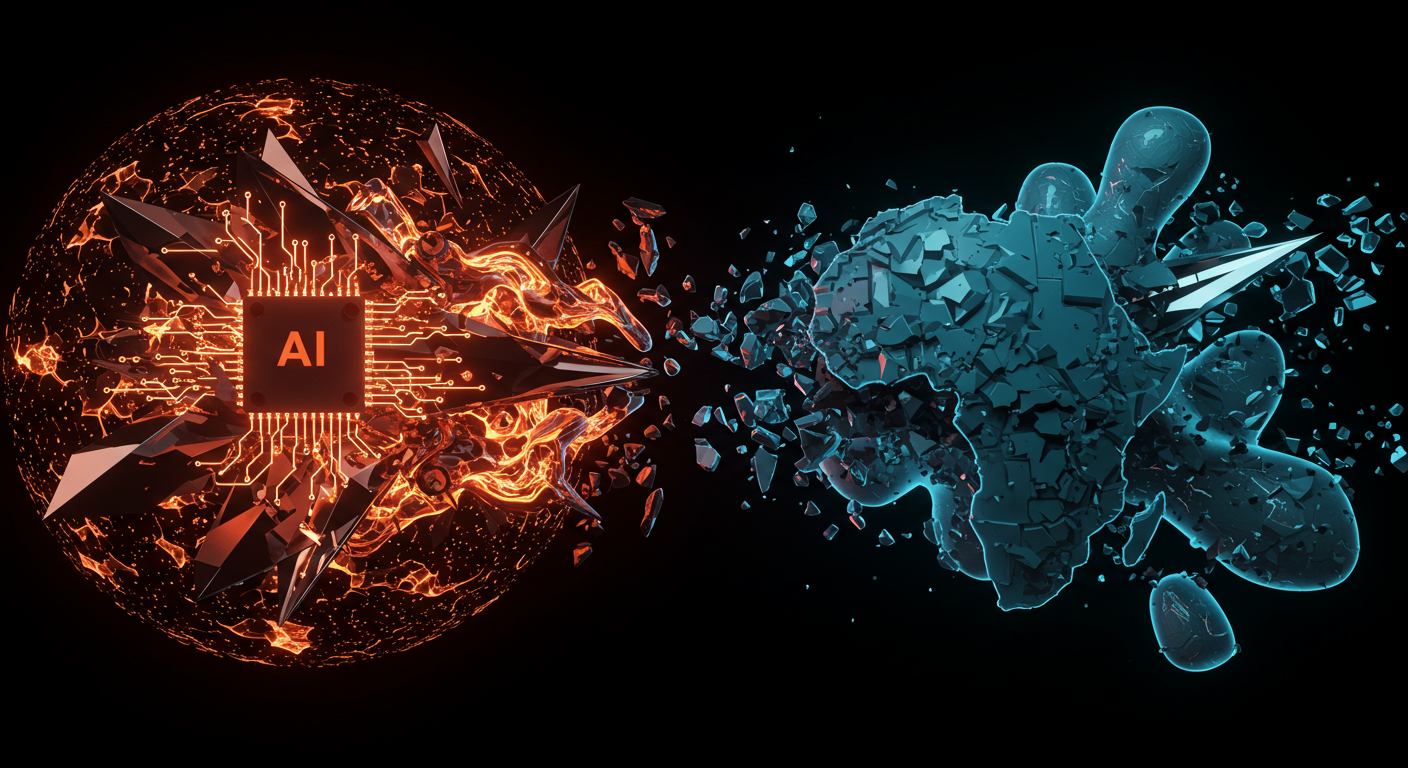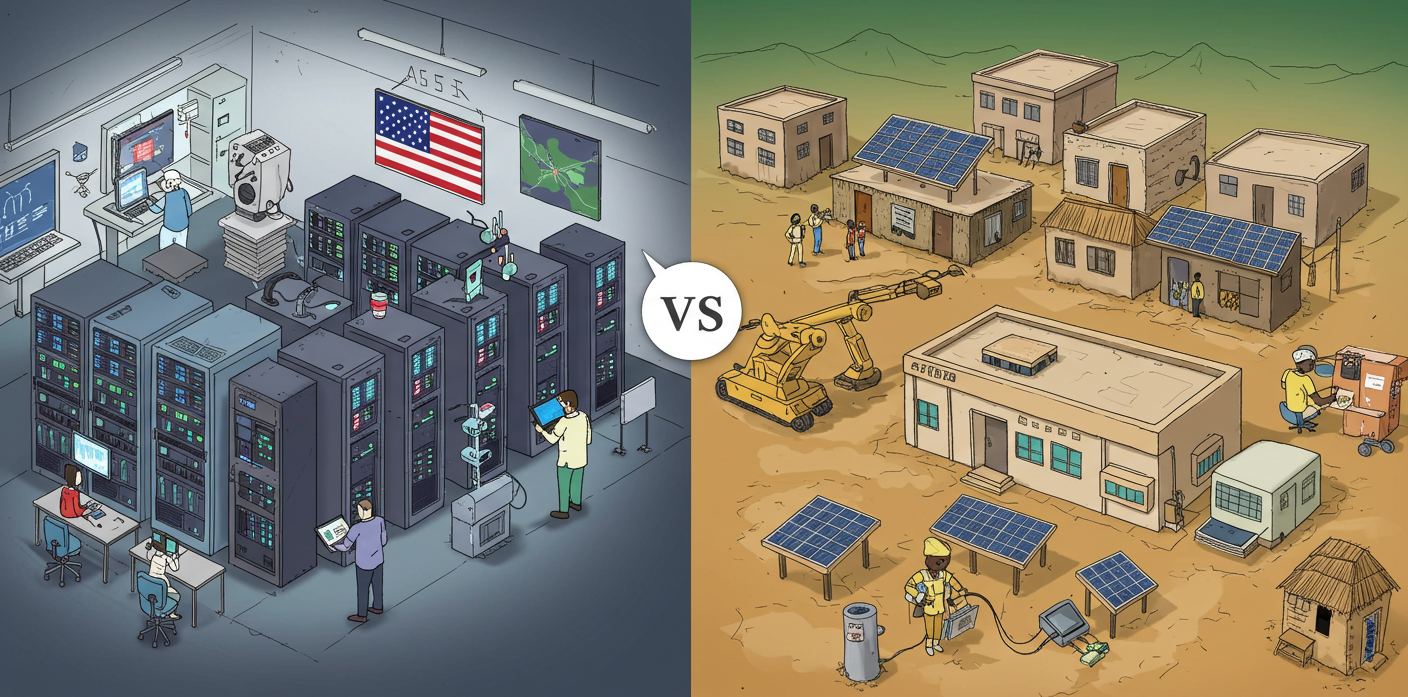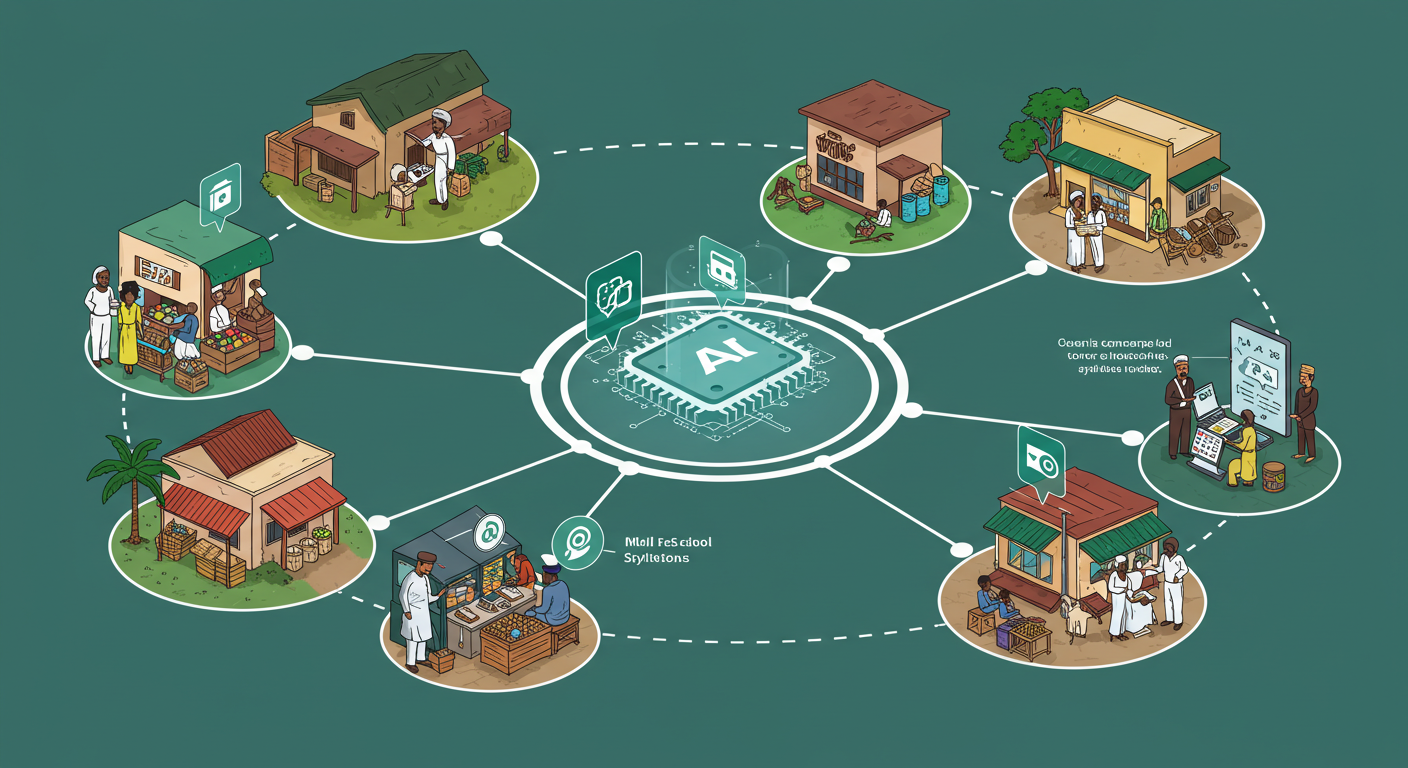Building AI for Nigeria: Beating the Superpowers at Their Own Game
by Samson Odo, Founder & CTO
For years, the AI race has been a glitzy showdown between superpowers — trillion-dollar budgets, government labs, and a talent tug-of-war fiercer than the Premier League’s transfer window.
China has built its surveillance-state AI fortress. The U.S. has Silicon Valley’s endless VC cash and GPU stockpiles.
It’s an arms race where the winners hoard technology like dragons on gold piles, while the rest of the world watches from the sidelines.
At NodeShift, we’re not trying to outspend or out-muscle the giants.
We’re flipping the table and starting a new game entirely — one designed for Nigeria’s realities, not Silicon Valley’s fantasies.

The Superpower Smackdown We’re Skipping
Let’s be real — Nigeria isn’t dropping $58 billion a year on AI research.
The U.S. spent that in 2023 alone. China’s state-backed tech giants are closing the gap fast, with projects like Baidu’s Ernie Bot leading the charge.
Meanwhile, Nigeria’s AI investment still struggles to gain momentum, despite growing need.
We’re not in the same weight class — Nigeria’s GDP sits at $477 billion, dwarfed by multi-trillion-dollar economies.

Outbidding them for talent? Forget it — Nigeria’s top AI graduates are already packing their bags for California, Shenzhen, or anywhere with a stronger passport and better internet.
So why even bother?
Because while they race to invent the next generation of AI,
we’re busy making today’s AI work for Nigeria’s real, messy, chaotic opportunities.
Nigeria’s AI Lag: A Reality Check
Let’s talk numbers.
Nigeria’s AI ecosystem is still finding its footing.
A 2024 McKinsey report pegs AI adoption across Africa at just 15% of global levels — and Nigeria is still catching up.
Internet penetration is stuck around 49.5% — half the country offline, the other half on 3G praying for a signal.
Power?
The national grid delivers under 4,000 MW for over 200 million people, while California alone generates 50,000 MW.
Data for AI training?
Scarce — less than 5% of businesses fully digitize records.
Funding?
Venture capital in Nigeria hit $1.2 billion in 2023 — literal peanuts compared to the U.S.’s $200 billion.
We’re not behind because we’re lazy.
We’re behind because the basics aren’t there.
While China builds 5G towers on every street corner, we’re fixing diesel generators.
The U.S. has cloud farms — we still have literal farms.
Competing head-to-head is like bringing a yam to a gunfight.
Doing AI the Nigerian Way
So, no — we’re not trying to build the next multi-billion-parameter model.
Open-source models like Llama and Mistral are already free and powerful enough.
Instead, we’re grabbing what’s available and bending it to Nigeria’s chaos.
Think of it as Jollof Rice AI — spicy, practical, and made from whatever ingredients are on hand.

While superpowers chase bleeding-edge breakthroughs, we’re stitching together solutions that let Nigerian businesses scale, automate, and maybe even pay salaries on time.
90% of Nigeria’s businesses are SMEs — most running on WhatsApp, prayer, and persistence.
They don’t need a $10 million AI lab.
They need tech that runs on a Nokia 3310’s battery life.
That’s where NodeShift comes in —
Not with one shiny app, but with a web of interconnected solutions that blend education, operations, and growth into something that actually makes sense here.
Ecosystems, Not Ego Trips
One-trick AI startups are dead on arrival.
A chatbot?
Google already has ten.
An analytics tool?
Microsoft built it into Outlook.
But a living, breathing intelligence network, stitched into the fabric of Nigeria’s economy?
That’s a different beast.

Instead of slapping AI onto individual problems, we’re weaving it into how businesses learn, hire, sell, and survive in a market where getting 20% of customers to pay digitally counts as “progress.”
Picture this:
- A Lagos trader syncing inventory with real-time sales insights.
- A Kano school automating admin on spotty Wi-Fi.
- A Jos cooperative predicting weather patterns without a single cloud contract.
Not with Silicon Valley price tags.
Not with supercomputer farms.
Just smart, scrappy, localized AI — the way Nigeria demands it.
The Latest AI Buzz — and Why It’s Not Enough
AI’s latest toys are dazzling — GPT-4o’s multilingual fluency, Grok’s wit, DALL-E 3’s art wizardry.
In 2024, China rolled out DeepSeek to challenge OpenAI’s dominance.
The U.S. poured $1.5 billion into building next-gen AI chips.

Cool — but in Nigeria, where 60% of startups die within three years, that’s just background noise.
Our SMEs aren’t asking for poetry-writing bots.
They need reliable cash flow, smarter operations, and a chance to scale past their first dozen customers.
When your power cuts out mid-demo or your ISP decides you’ve had enough internet for the day, poetry-writing bots don’t help.
That’s why we’re taking the free tools and building systems that grow with Nigeria’s reality.
Winning by Not Playing
So, are we beating China and the U.S. at AI?
Of course not.
Their budgets could buy Nigeria’s GDP — twice.
But we’re winning where it matters:
- Getting Nigerian businesses off the sidelines.
- Building resilience without waiting for perfect infrastructure.
- Turning AI into a growth engine, not a glossy press release.

In the long run, it’s not who builds the flashiest tech that wins.
It’s who makes it stick.
And in that game, Nigeria has a puncher’s chance — because we’re scrappier, tougher, and a lot hungrier.